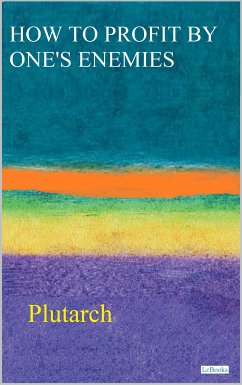Plutarch (46-119) was a Greek philosopher, historian, and biographer. He studied mathematics and philosophy at the Academy of Athens, the same institution studied by Plato, and dedicated himself to politics, achieving high public offices. Plutarch wrote hundreds of texts, among them Parallel Lives, which consists of a collection of 64 biographies of prominent Greek and Roman figures. His work, "How to Profit from Your Enemies," teaches us that although they may harm us, our enemies can also aid in our personal and moral development. Plutarch, drawing from other thinkers such as Xenophon and Diogenes, demonstrates that the emotions stirred by them can be excellent motivators for decision-making when used correctly. Written in the first century of the Christian Era, "How to Profit from Your Enemies" remains entirely relevant, as in an increasingly competitive world, knowing how to benefit from adverse situations can be the difference between success and failure.
Dieser Download kann aus rechtlichen Gründen nur mit Rechnungsadresse in A, B, BG, CY, CZ, D, DK, EW, E, FIN, F, GR, H, IRL, I, LT, L, LR, M, NL, PL, P, R, S, SLO, SK ausgeliefert werden.









